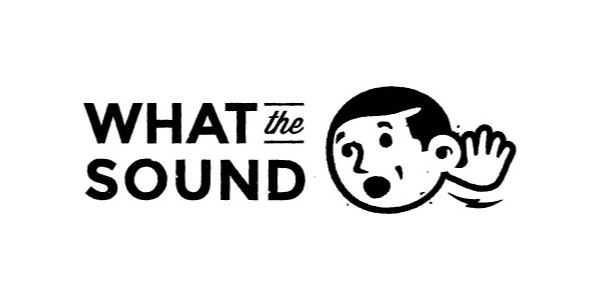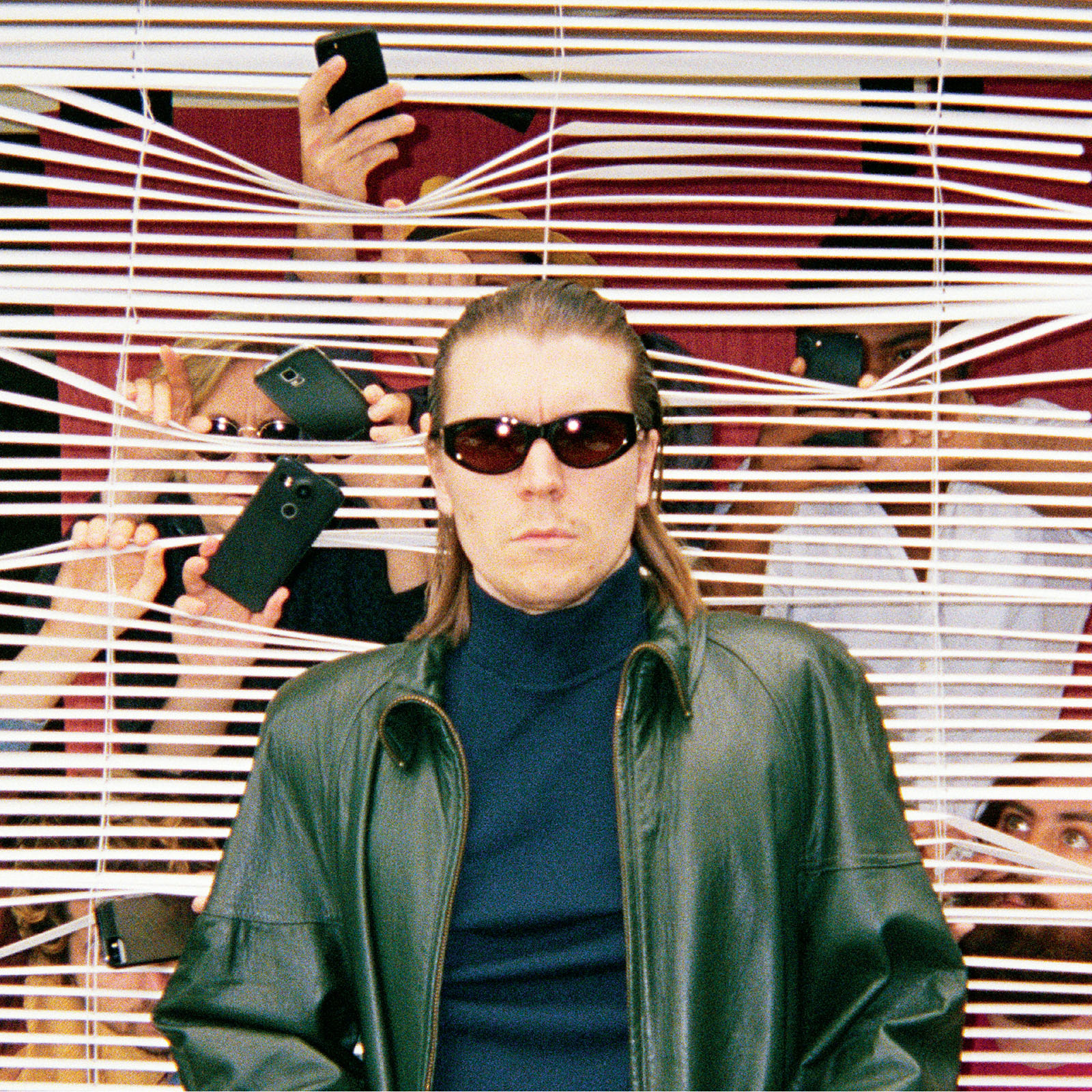What The Sound: Thank you both so much for taking the time to speak to What the Sound this evening, it’s really exciting to speak to both of you.
Forced Witness Album Art
Alex Cameron: Yeah it’s a pleasure, nice to see you.
WTS: Would you mind giving our readers an introduction into how and when you got your start making music? How did Sydney shape your motivations and inspirations and what did you pull from outside of Sydney?
Alex: We came up on the pub scene in Australia, which essentially means we were playing gigs for people drinking in small bars. After we started our own bands and became comfortable being on a stage and what not, we decided to form a duo back in 2012 while we were delivering pizzas together. I had a bunch of demos and Roy was into them so we just decided to partner up and get working.
Sydney is the kind of town where in the 70s, 80s, and 90s there was a lot of pretty happening bands, so I draw more from the earlier era of Australian songwriting than I do the contemporary. But again, there is a lot of great songwriters in Australia at the moment: we’ve got Jack Ladder playing with us tonight, Kirin J Callinan, Lost Animal, and there is a band called Spike Fuck worth checking out. It’s a prolific scene, and while we get out, it’s difficult for Australian artists to come over here and work. I think that’s what separates us right now, were the ones over here just busting out work.
WTS: I was just thinking today about what it might have been like for a band to make music outside of major industry centers like the US. So, after you showed him the demos and you got together, what next steps did you take to publicize your album?
Alex: We released the record online for free, and then we managed to find Secretly Canadian, who became interested in us after we started touring with a band called Foxygen. Foxygen had asked us to support them because they had the new album. So started out in Boise, ID and traveled down to South Carolina.
WTS: (To Roy) Were there any experiences you had while growing up or people you met that inspired your musical career?
Roy Molloy: Well I played the saxophone since I was a little kid and then when I turned sixteen I gained access to the school piano, so I would play that most days at lunch time. However, in terms of making music properly, that didn’t come along until my 20’s but I never found much success or recognition until Alex had me on board for this last record to do a little bit of writing and recording.
Photo by Chris Rhodes
WTS: Well speaking of the new album, I thought it was spectacularly done, specifically your dark style of storytelling. The focus on love’s depravity was fascinating; what led you to go that route?
Alex: I think it was becoming common and instead of writing from a pedestal from indie moderndom, I wanted to write about the everyman and what is the most common behavior when it comes to love and relationships and getting online. A lot of people just don’t expect it in songwriting but that doesn’t mean that it’s not the majority. The majority of people don’t get to write songs, it’s the vast minority. Anyone that steps into a recording studio is experiencing something very unique, so our job is to try and tell a truthful version of reality as opposed to an airbrushed indie version.
Roy: Expanding on what Alex said, if someone’s got a microphone, a politician or a writer or a whatever, generally they are pretty fucking out of touch and that’s been demonstrated in a number of instances recently. I’m not going to say that’s a bane but it’s a problem in the world. We’ve got reality and we’ve got what’s broadcast and right now there’s a bit of a gap between the two.
WTS: Despite the modernity of all these stories, the instrumentals provide a bit of a nostalgic element. What drove you to pick the style you used on the latest album?
Alex: It's circumstantial I think, if you know what you are listening for our album generally sounds about as much as it costs. So that influences its circumstances, along with the fact that we listened to a lot of highway rock and roll, country, and pop music from the 90's. That comes from touring because we listen to the radio a lot. In fact, when we first started touring, Roy and I, it was strictly radio we didn’t plug our phones in our anything, so anything we heard on the radio we would take on board as influential. What landed on the style of production was, and I have a slight degree of knowledge when it comes to electronic instruments and synthesizers, because i used to have an interest which I don’t really have anymore, but i certainly used some of that to shape the production and was influential on deciding what instruments to use.
Jonathan Rado, from Foxygen, played a big part in the instrumentation side of things. Jack Ladder played a lot of guitar and shaped a lot of the chord voicing. We wanted to make a record that didn't sound quintessentially 80's, so to do that we took some things from the era, but we also threw in some curveballs such as the storytelling and some of the synthesizers we used to make a nightmare quality, an alien sense of what rock-pop-country might sound like.
WTS: Any specific musicians that had a big influence on your latest album?
Alex: Prefab Sprout was a big one, a band called China Crisis, you don't hear them get thrown around a lot when it comes to inspirations but if you know your stuff you'll know them. Then of course all the legends - the classic rock icons.
Roy: Yeah, my knowledge of music isn't particularly deep so a lot of it was classic rock legends.
WTS: You’ve talked a bit about this already, but I was curious how your attitudes and ambitions towards making music changed in between Jumping the Shark and Forced Witness.
Alex: The record is always going to be a platform for the stories so I try and create a soundscape that launches the stories properly. Jumping the Shark was very close and huddle because it was someone writing out of their garage. Forced Witness was more sparse and open, a little more hi-fi because it’s a little seedier, it's definitely a lot darker than the first album, as the characters aren't so harmless as before.
WTS: Alright so if you could choose anyone to produce an album for you, who would it be?
Alex: I'd like Mark Knopfler to produce an album (Roy: "now were talking"), Sly and Robbie as well.
Roy: Whoever you get on there to do it, get ready for a lot of people to compare your sound to theirs, often flippantly.
WTS: Oh yeah you guys get that a lot?
Alex: We don't get a lot of comparisons, nothing that makes us rethink what we’re doing.
WTS: Nothing that makes you freeze in your tracks?
Photo by Cara Robbins
Alex: Nah, we don't really focus on that. People have to categorize the music somehow.
We've worked together on a number of jobs on and off, so Forced Witness was the extension of a pretty long business relationship.
WTS: Where did you guys first meet?
Alex: Back when we were little kids, back then Sydney used to be more village. We grew up in a town called Bondi, which is a beach town in the eastern suburbs of Sydney. Then the Sydney Olympics took place, around the time when we were 12 years old, and it got gentrified like crazy. Since we've grown up it’s become one of the more beautiful places on the planet and the quality of life has increase infinitely.
WTS: Do you think it’s all for the better? Those situations always have their costs.
Roy: The only negative is that we could never in a million years dream to live there again. And if anyone can live there good on them.
Alex: Yeah we can’t afford to live there, we're never going to live there.
WTS: Would you ever want to go back there to make your next album?
Alex: There's no work for us in Australia. Plus, if we’re going to go somewhere to make our next album and New York costs the same as Sydney, take your pick.
WTS: Any thoughts yet on the next album? Obviously, you guys deserve some down time, but my curiosity gets the better of me.
Alex: No, not yet. Our approach has always been to work a record, become masters of it. Our next job is to play live, take the record around. I don't believe in rushing out music or I don’t have a bug that I'm trying to lose when I write music. I like the idea of making a love album, but we'll see how that goes.
Interview by Max Goldstein




